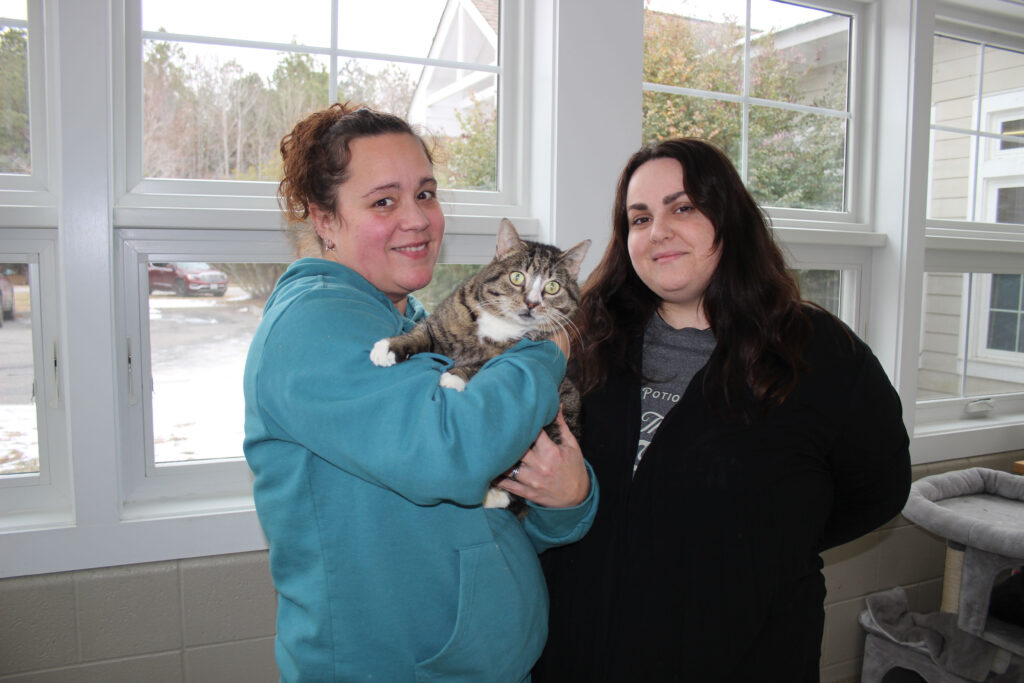“Kitten season is coming up.”
The Gloucester-Mathews Humane Society experienced an explosive kitten season of 400-500 kittens last year, according to shelter manager Jasmine Jutras.
“It was the worst kitten season I’ve seen in 10 years,” said operations manager Chevy Carper. “It was bad.”
“We’ll always take the kittens in,” said Jutras, “but we really want to see the mother spayed.”
“Let’s help solve the problem, instead of addressing the result,” said Carper.
GMHS is committed to setting the public up for success. The shelter loans traps for people to use to capture feral cats in their neighborhoods so they can be taken to be spayed or neutered. The shelter can also provide information for low- or no-cost spay and neuter services in the area, like its own Fixin’ to Save Spay and Neuter Clinic at White Marsh Shopping Center.
“Let’s start looking at the solution and get mom fixed,” said Jutras.
“Spay and neuter saves lives,” said Carper.
A large percentage of kittens born in the wild wi...
To view the rest of this article, you must log in. If you do not have an account with us, please subscribe here.

